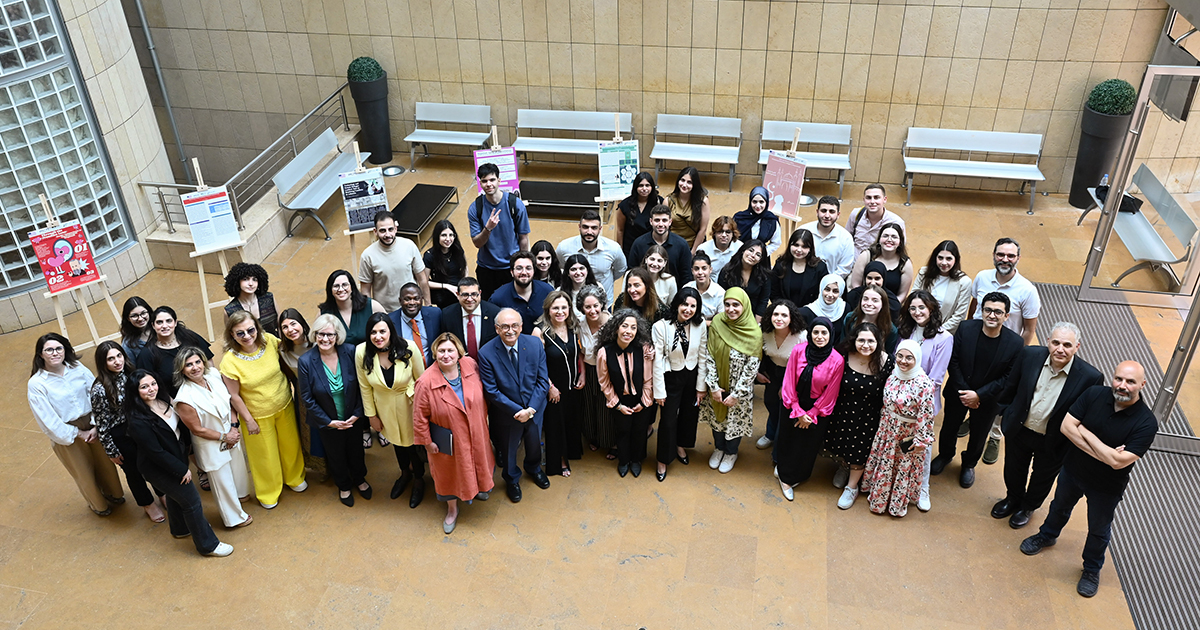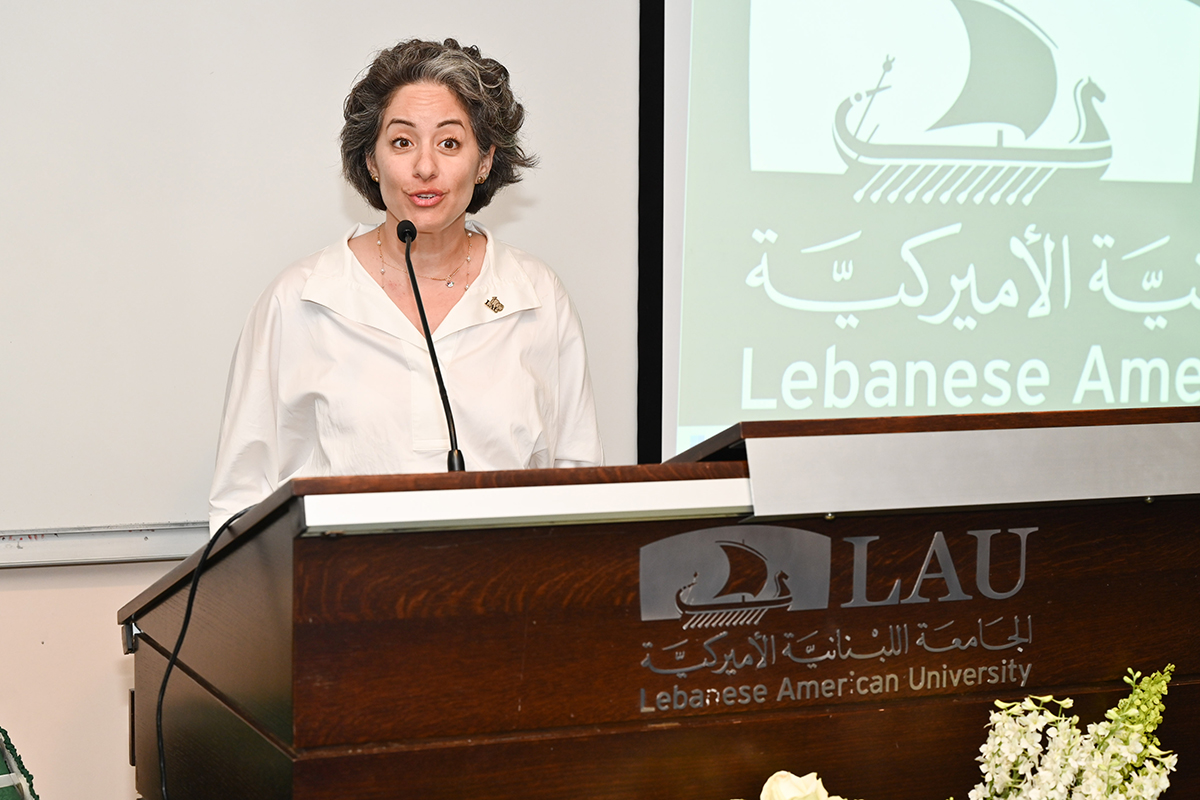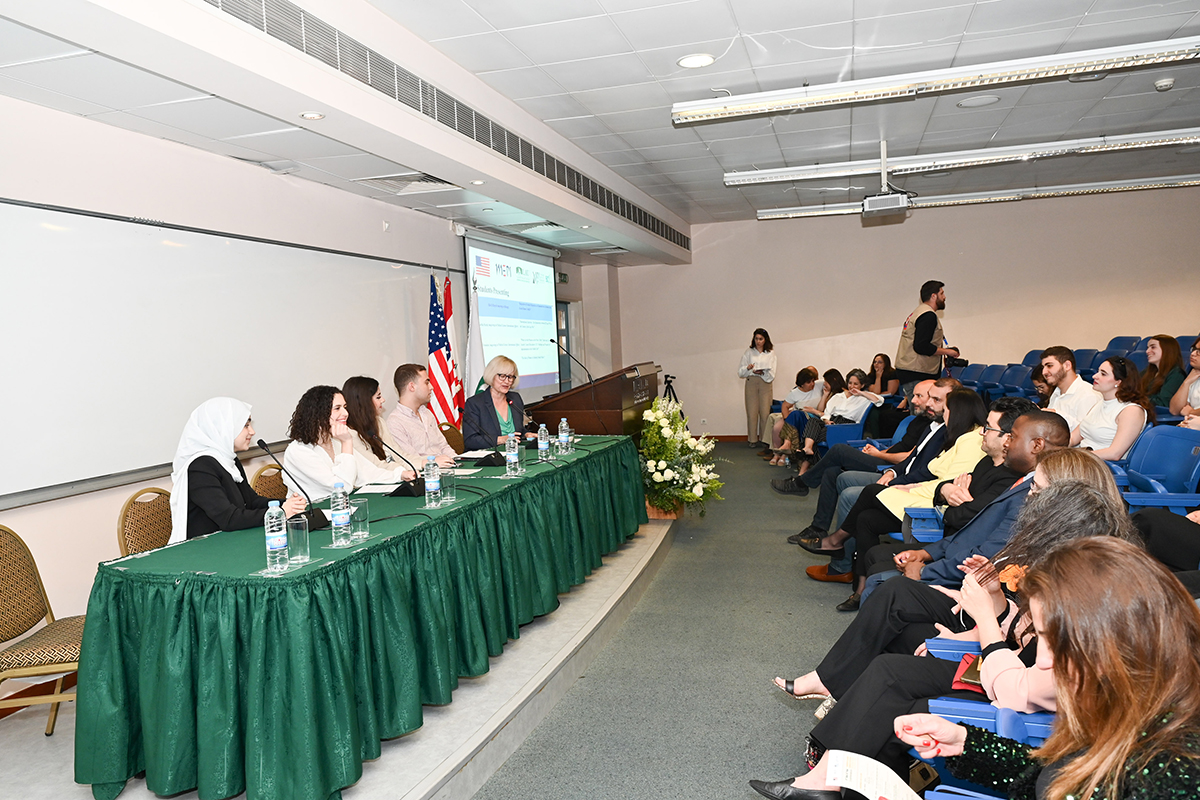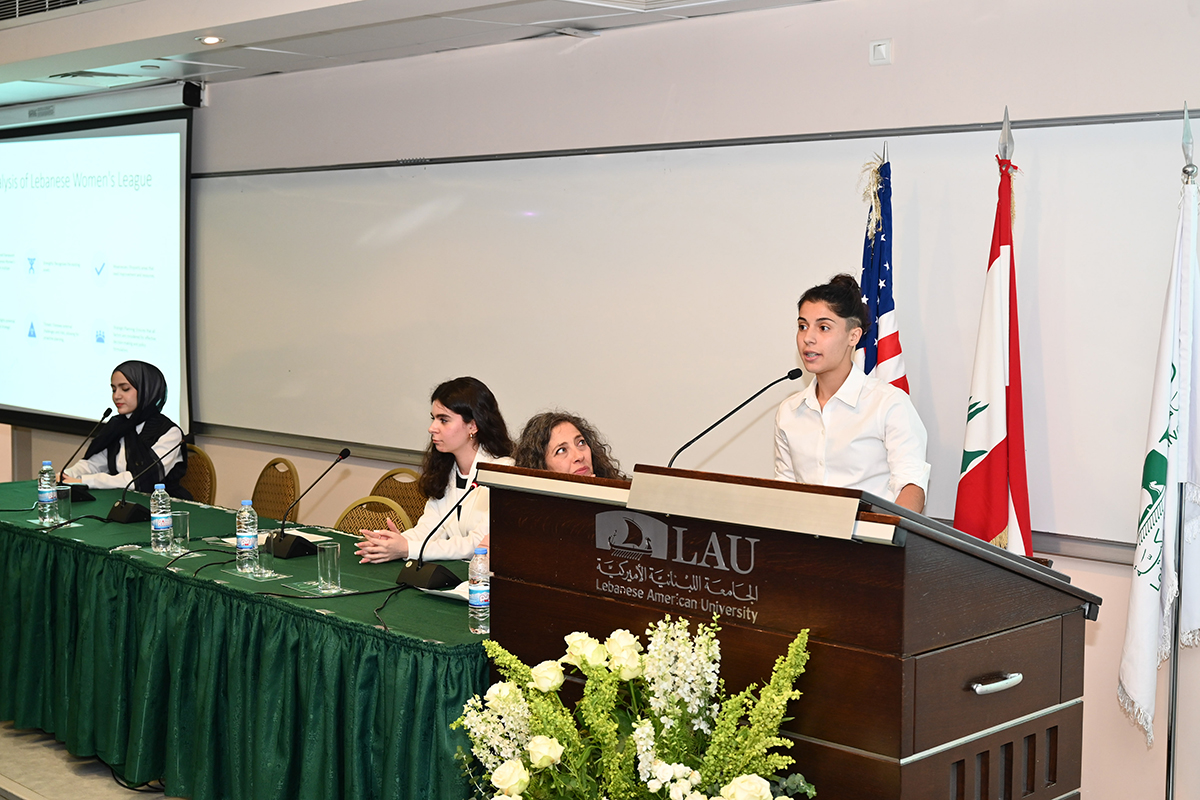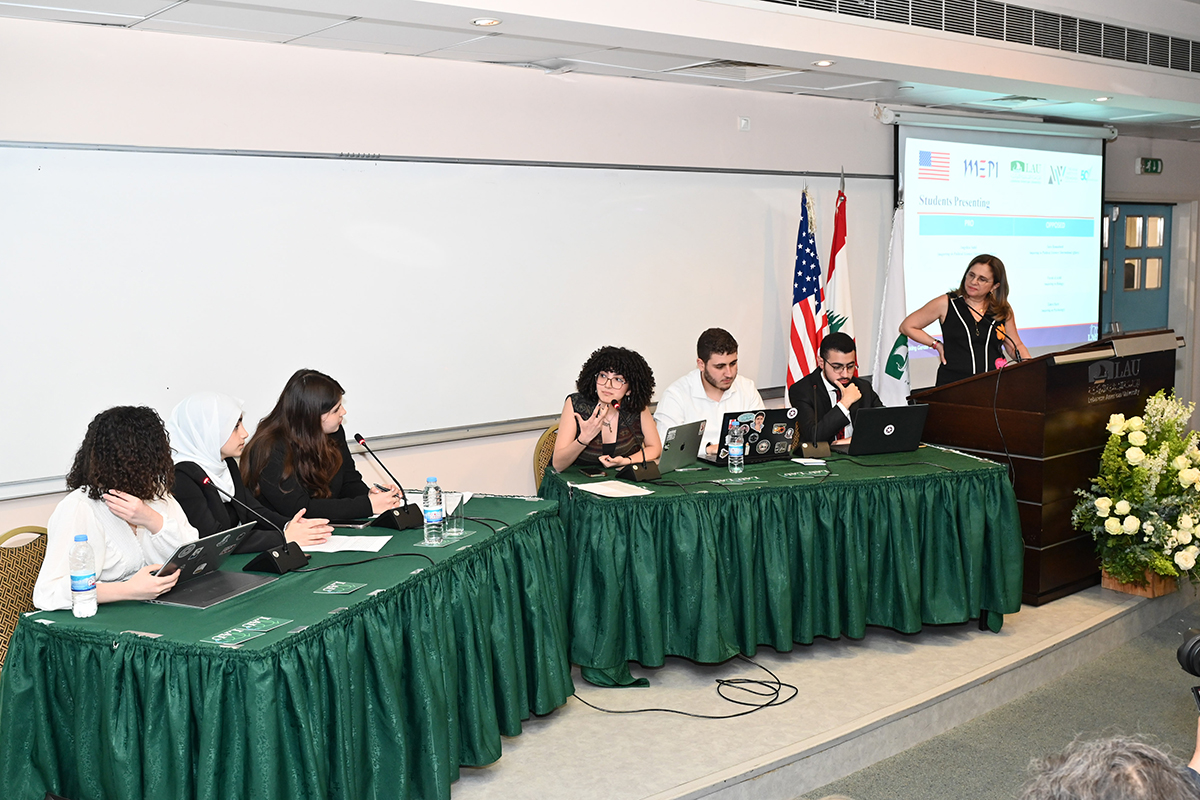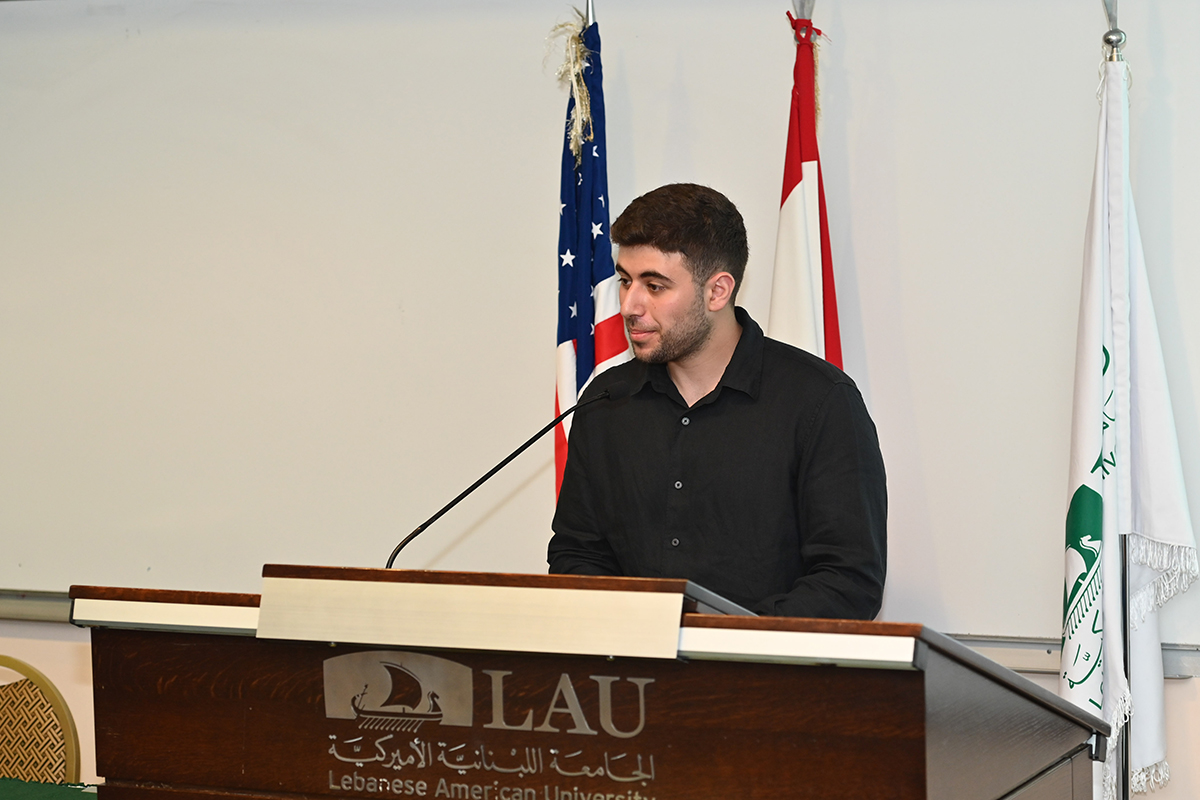Tackling Gender Inequality in Times of Crisis
The fourth end-of-year conference for Tomorrow’s Leaders Gender Scholars delves into timely topics and adopts an intersectional approach to gender justice.
The United States Government, via the U.S. Middle East Partnership Initiative–Tomorrow’s Leaders Gender Scholars (MEPI–TLS), has raised the bar on gender advocacy at LAU for four years through experiential learning, advocacy and policy research.
As part of the program, the scholars are required to complete two gender courses in collaboration with the Arab Institute for Women (AiW) at LAU, which has been a powerhouse for gender justice in Lebanon and the region for 50 years.
To showcase their efforts throughout the year, MEPI-TLS and the AiW hosted a conference titled Tackling Gender Inequality During Times of Crisis, on May 29, 2024, on the Beirut campus.
LAU President Michel E. Mawad expressed his deep gratitude to the American people, U.S. Middle East Partnership Initiative (MEPI), the US Agency for International Development (USAID), and the U.S. Embassy Beirut for the generosity that “has proven its worth as an investment in young people with multifaceted, multi-year returns that have exceeded all expectations.” The program, he added, was “a powerful enabler, a leadership forum and a life-changing experience,” for the scholars.
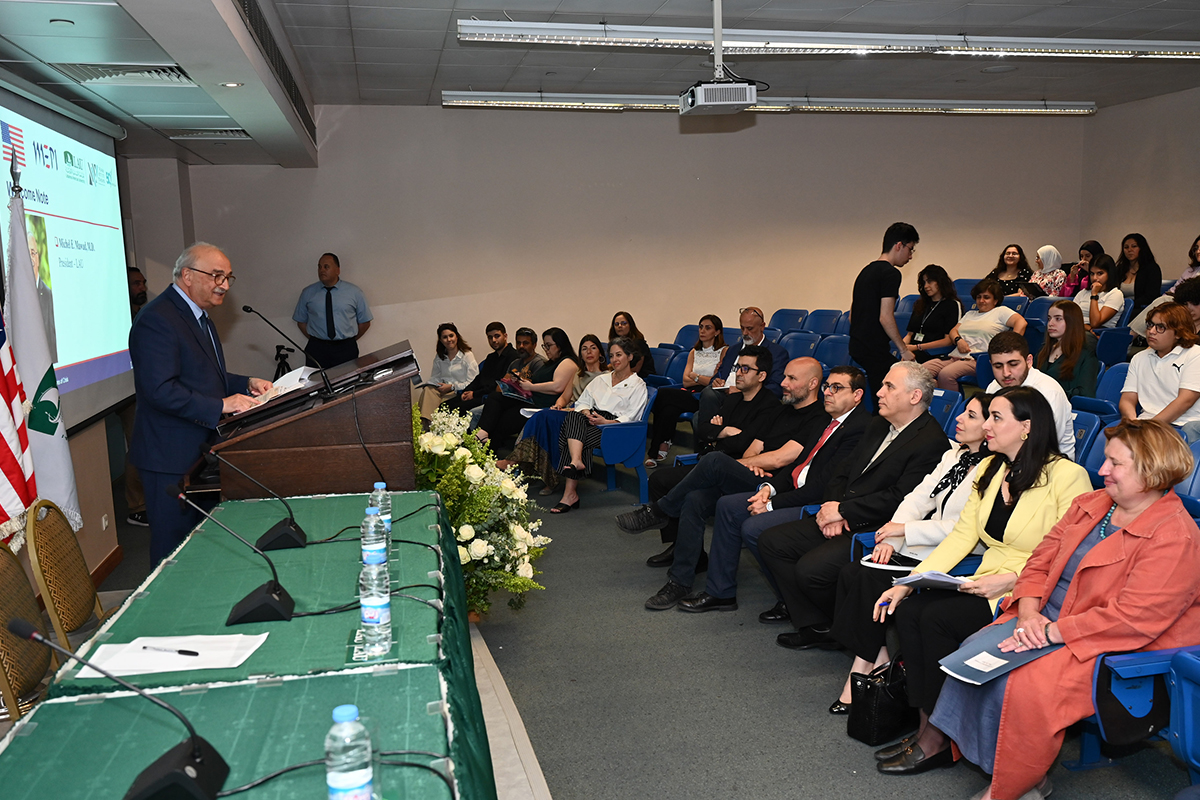
The US Government has invested more than $120 million in the MEPI-TL graduate and undergraduate programs, noted U.S. Embassy Deputy Chief of Mission Amanda Pilz. She encouraged the scholars to use “knowledge and skills to challenge stereotypes, advocate for gender equality and create opportunities for women and girls to succeed.”
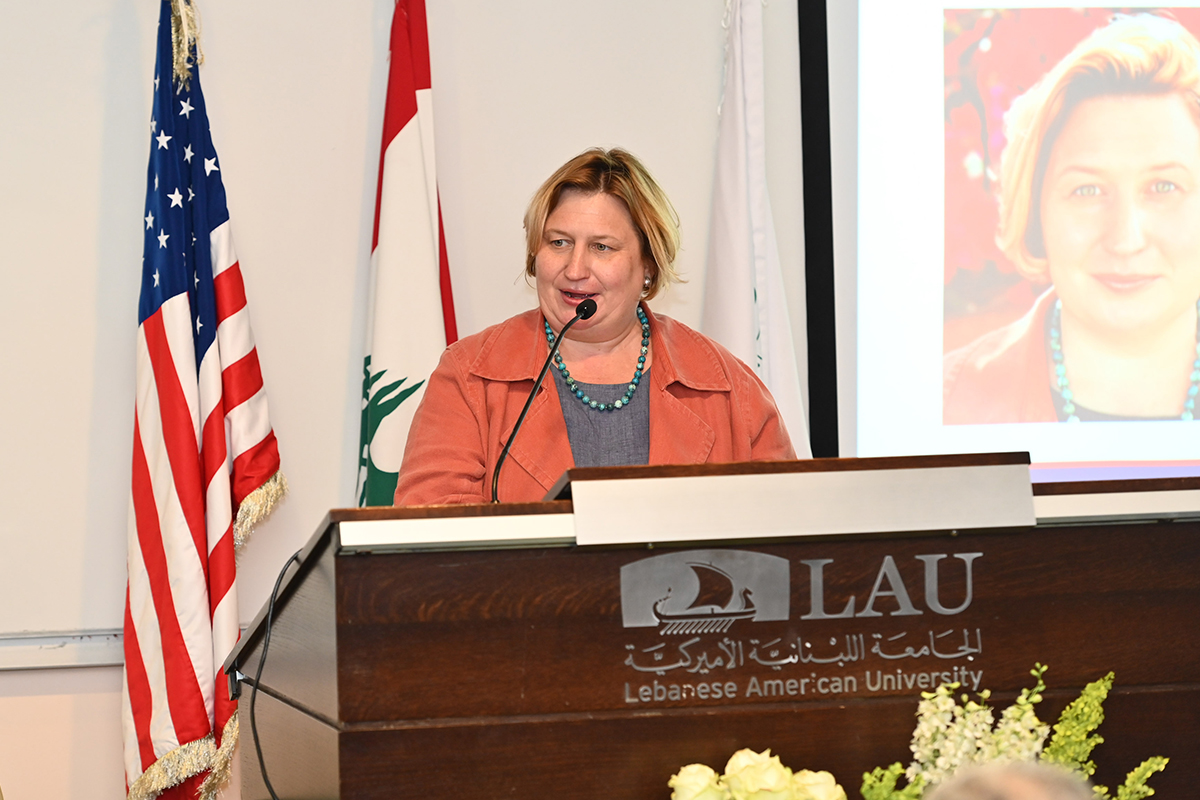
Although external challenges had tested the faculty’s, staff’s and students’ resolve in the program’s lifetime, remarked LAU MEPI-TLS Academic Director and Assistant Professor Lina Kreidie, they had emerged stronger.
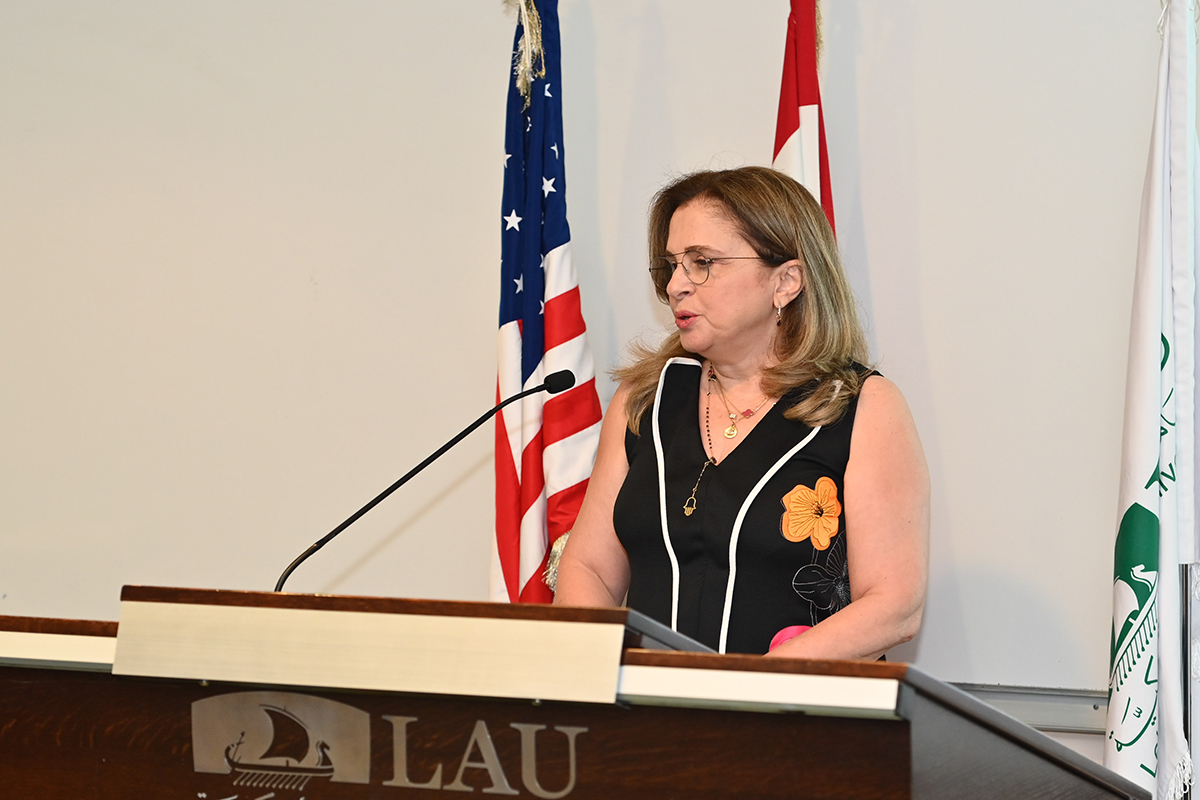
“My dear TLSers,” she said, “you strongly and passionately stood up, traversing through the crisis, learning, sharing ideas, discussing controversial issues, and doing gender at home, on campus, or anywhere you come from in Lebanon—especially those who were displaced from the South and kept attending classes. You successfully completed this year, affirming that your struggle for social justice and human rights will never yield.”
The conference featured a keynote speech by Dr. Zeina Mohanna, political studies and public administration lecturer at the American University of Beirut, and an executive and administrative board member of the Amel Association International.
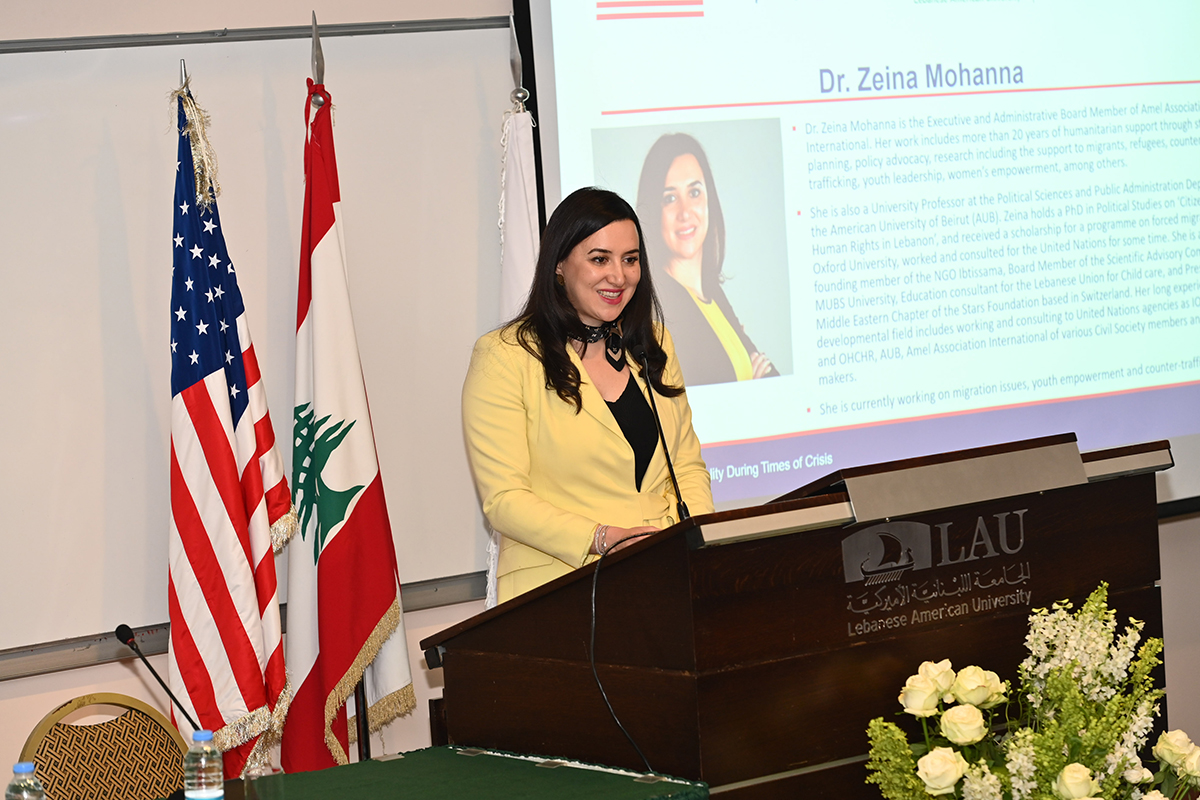
Giving an overview of the plight of the Lebanese in the past four years, Dr. Mohanna expanded on the different crises, starting with the socio-economic decline, the COVID-19 pandemic, the August 4 explosion, to the ongoing war in South Lebanon, which had so far resulted in the displacement of 98,000 people.
As part of its relief response to the hardships in the south, she added, the Amel Association had trained 225 displaced women in agricultural production to help them restore the level of financial security their families had lost.
“We cannot underestimate how women have played a key role in resilience in the face of all these emergencies,” said Dr. Mohanna, noting how women continue to be underrepresented in political and leadership positions.
For AiW Executive Director Myriam Sfeir, “uncertain times necessitate that we capitalize on our youth and rethink the future, especially in light of the global backlash against gender rights and the compounded crises facing Lebanon and the region.”
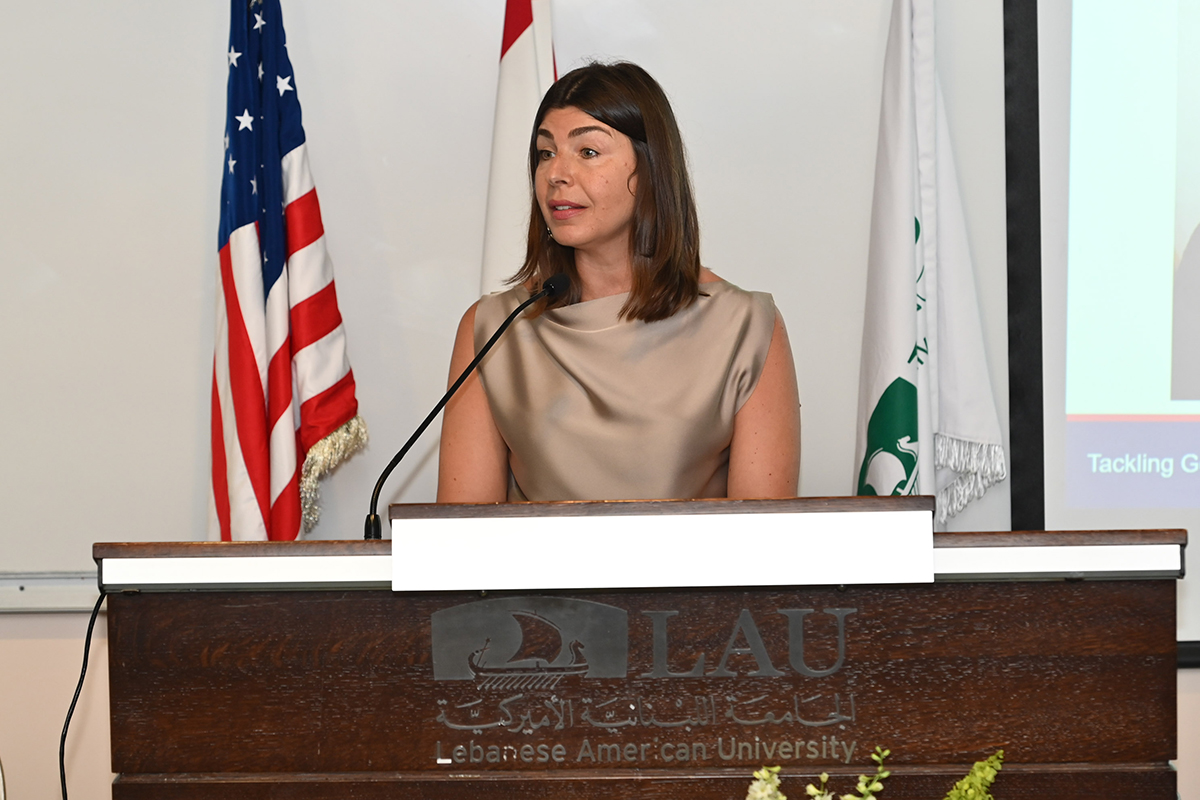
The institute strives to support students through mentorship and internships, among other initiatives. To champion their outstanding work on issues of gender equality and women’s rights, the institute offers them the opportunity to publish their research papers in a special MEPI-TLS issue of the AiW’s flagship journal, Al Raida.
Throughout the conference, students passionately discussed their timely work in the form of oral presentations, poster presentations, and a debate.
